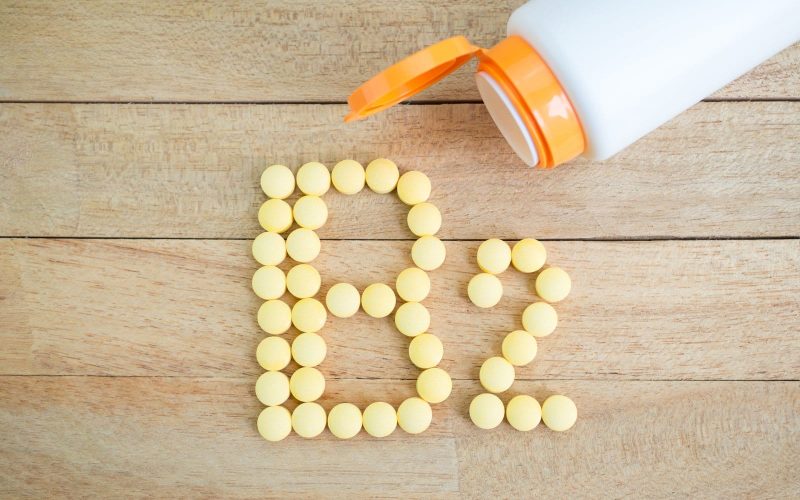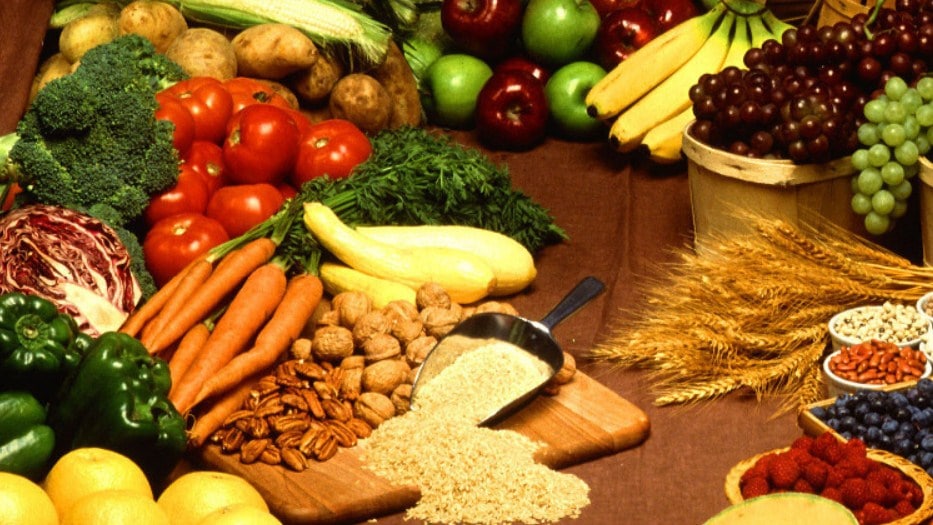Riboflavin is also known as vitamin B2 and is one out of the eight B-complex vitamins. Just like the other B vitamins, riboflavin plays an energy production role in the body, but it also has quite a number of vital uses.
Riboflavin food sources
Riboflavin is a water-soluble vitamin that is constantly flushed out of our bodies on a daily basis, thus it must be restored daily. The best way to get riboflavin is to eat foods that are rich in vitamin B-12.
This B vitamin can be found in nuts, eggs, broccoli, meats, dairy products, Brussel sprouts, brewer’s yeast, soybeans, mushrooms, wild rice, whole grains, leafy green vegetables, enriched cereals and loaves of bread.
Benefits of riboflavin
Riboflavin is an essential vitamin that is vital for healthy growth and overall good health. This B vitamin helps your body to easily break down proteins, carbohydrates, and fats that help to produce energy, and it lets your body to use oxygen.
Vitamin B2 is also used for the function and development of skin, blood cells, lining of the digestive tract, and other vitals.
Vitamin B2 is also vital for vision as it helps to improve eye health. Per claims by the University of Michigan, riboflavin is useful for the protection of glutathione, which is a vital antioxidant in our eyes.
It was also reported by the United States National Library of Medicine that feeding on foods that are rich in riboflavin can help reduce the risk of cataracts development. You may also find supplements containing niacin or riboflavin helpful food the prevention of cataract.
The levels of some chemicals, vitamins, and minerals in the bloodstream appear to be somewhat dependent on harassment amounts of riboflavin in the system.
For instance, vitamin B2 changes folate and vitamin B6 into simpler forms that the body can use. The American Journal of Clinical Nutrition suggests that riboflavin is vital to how the body processes iron.
Research shows that without riboflavin, the body is most likely to suffer a shortage of blood known as anaemia. Taking foods rich in riboflavin can also help you reduce levels of homocysteine in the body by up to 26 or 40%.
Riboflavin may also be essential to pregnant women as well. Per a study carried out by the University Women’s Hospital in Heidelberg, Germany, vitamin B2 deficiency may play a role in the cause of pre-eclampsia, a condition that leads to high blood pressure in the latter part of pregnancy.
People who suffer from migraines may discover that taking a few doses of riboflavin can be helpful.
In a study carried out by the department of neurology of the Humboldt University of Berlin revealed that people who took high doses of vitamin B2 had significantly fewer cases of migraines.
Deficiency and dosage
It is rare for people in developed nations to suffer from a deficiency of vitamin B2 because it can be found in most of their common food options.
Some individuals are more prone to this deficiency than others, an example of such people include those who are underweight as a result of being on an extreme diet and those who may have digestive issues such as celiac disease.
Elderly people, teenagers, and alcoholics are more vulnerable to a vitamins B2 deficiency when they indulge in a poor diet.
Riboflavin deficiency can cause sore throat, anaemia, sores on the lips or in the mouth, swelling of soft tissues in the mouth, and inflammation of the skin. Such symptoms may be noticed within a few days of a deficiency, per reports from the American Journal of Clinical Nutrition.
The RDA of vitamin B2 greatly depends on gender, age, and reproductive status. Recommended daily allowance for riboflavin is 1.1 mg per day for women and 1.3 mg per day for men.
A higher dose of up to 3 mg daily can help with the prevention of cataracts. Higher riboflavin doses of up 400 mg can be used for the treatment of migraines.
One hard-boiled egg contains 0.3mg, a single cup of chopped kale has 0.1 mg, one glass of whole milk contains 0.4 mg. From a single cup of whole almonds, you can get 1.4 mg of riboflavin or up to 85 per cent of the recommend daily allowance.
As a supplement, vitamin B2 is often included in B-complex vitamins, and multivitamins. It is also sold separately in doses of 100mg, 50mg, and 25mg.
Relatively free of toxicity, vitamin B2 is considered safe for consumption in high doses because the excess will be flushed away through urine. With that said, there may be some side effects that show up after the intake of high amounts of riboflavin.
Side effects of riboflavin overdose
The only side effects that have been noticed are diarrhoea and a change in urine colour from see-through to yellow-orange. These side effects only show up after an overdose.
We would like to know what your thoughts are. Please don’t hesitate to leave a comment below if you have any opinions to share on riboflavin.









